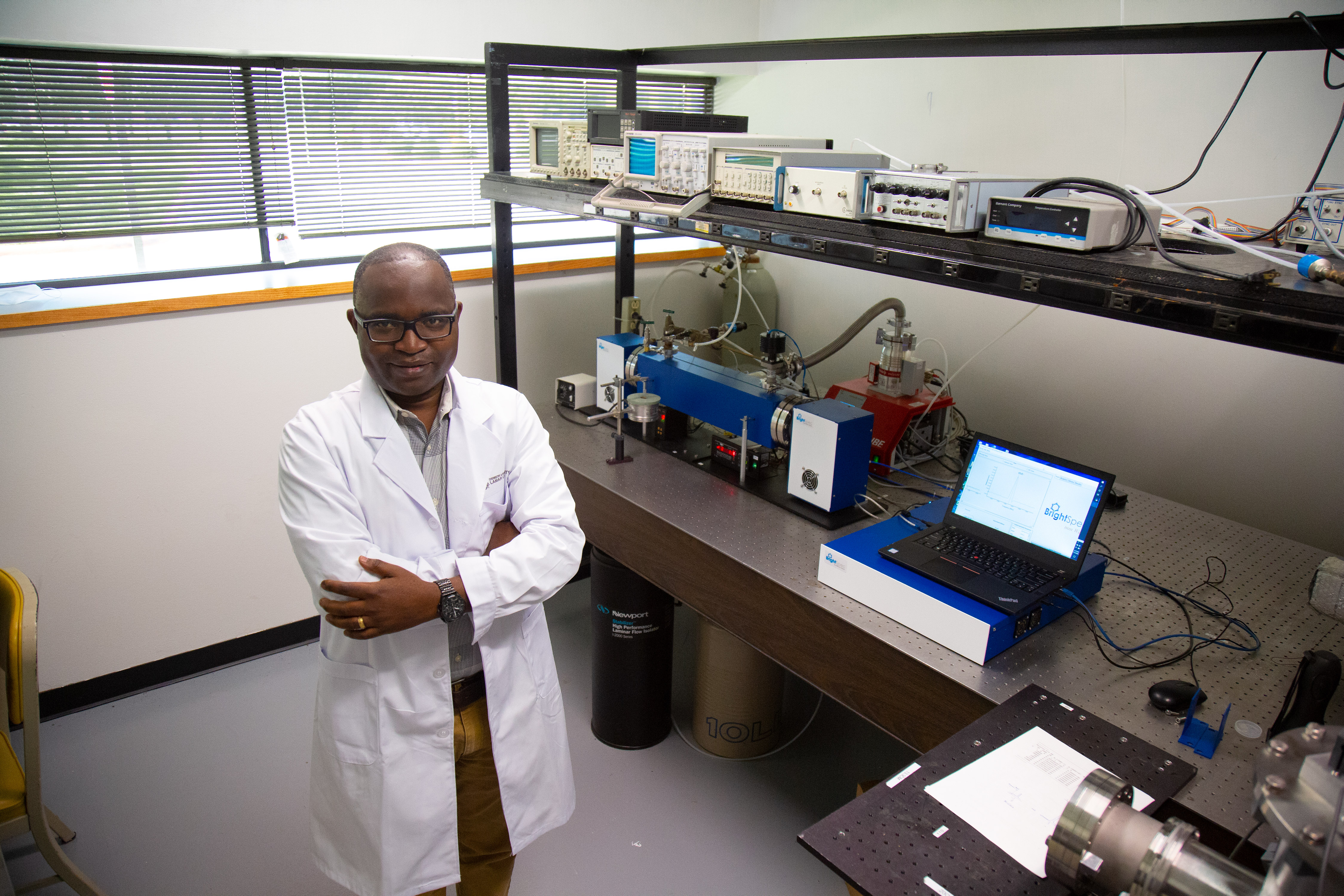LU chemistry professor awarded $200,000 NSF grant for research
July 11, 2022 | by Shelbe Rodriguez

Dr. Sylvestre Twagirayezu, assistant professor of chemistry, has been awarded a National Science Foundation LEAPS-MPS (Launching Early-Career Academic Pathways in the Mathematical and Physical Sciences) grant of $249,682 to develop detection technology for long-chain fluorinated compounds for environmental trace analysis.
“Fluorinated compounds are man-made chemicals that become toxic to human health after being released into the environment. However, the determination of its structure and its environmental fate is a challenging task and demands highly selective analytical tools,” Twagirayezu said. “This grant will address this challenge and expect to provide scientific insights that will enable the development of new tools for the fast characterization of perfluorinated compounds in the environment.”
More specifically, Twagirayezu and his research team aims to obtain the rotational spectroscopic studies of perfluorooctanoic acids, a special class of compounds with considerable industrial applications, and their hydrate complexes that will facilitate specific research findings. The project will benefit multiple scientific communities involved in fundamental studies of molecular physics and environmental analysis and will strengthen existing research capabilities. Twagirayezu said he hopes this will encourage faculty at LU to collaborate on content in environmental and physical chemistry courses that teach students how real-world applications are related to fundamental studies.
“This NSF grant is an excellent boost to our research projects here at LU and, in fact, a SEED to my academic career. It also serves as a warm welcome to a large community of physical scientists and my research group is very pleased with the opportunity.”
The program also will incorporate participation of high-school and college students from underrepresented populations in the Southeast Texas community. Twagirayezu said not only will the project allow students to participate in the STEM research, but it also will enhance research capabilities enabling participating student researchers to attack hot scientific problems of our time in the greater Southeast Texas community.
“We will train these students to use practical skills in the analysis of complex data, development of scientific instruments and physical chemistry,” he said. “The students will be prepared to enter technology-based industries and will have the cross disciplinary skills needed to address technological and scientific problems of modern society.”